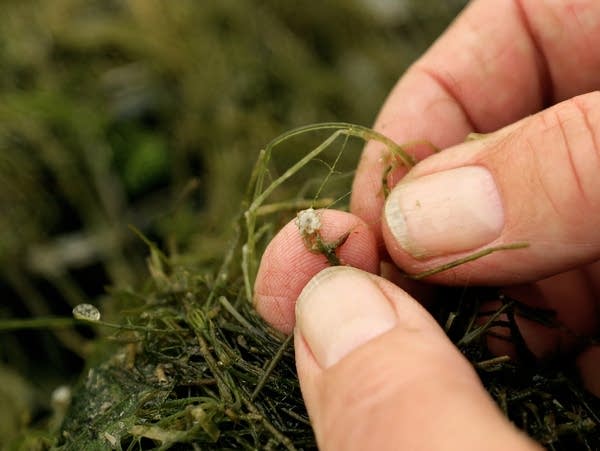Invasive starry stonewort found in Leech Lake

The unique aspect of starry stonewort is the star-shaped bulbs along its stems.
Paul Middlestaedt for MPR News
Go Deeper.
Create an account or log in to save stories.
Like this?
Thanks for liking this story! We have added it to a list of your favorite stories.


